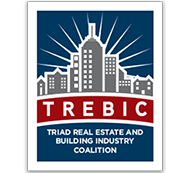IZ may be our biggest issue for the foreseeable future, given the looming challenges to delivering affordably priced product: federal dollars are short for traditional programs, our sluggish economy is not keeping incomes on-pace with inflation, regulatory and construction costs are rising, and developed lot supply is dwindling. WS and GSO are both considering IZ, so it’s important for TREBIC members to get up to speed on this issue so you can defend yourselves in rezonings and ordinance rewrites.
NC requires local governments to have statutory authority to institute even voluntary incentivized IZ, and fewer than 10 cities have it. But voluntary incentive programs are proving ineffective, so Chapel Hill has moved to requiring it in spite of the law, and some jurisdictions are resorting to strong-armed zoning conditions, especially in areas that are gentrifying, such as downtowns.
WS is one of those few cities with statutory authority for voluntary incentivized IZ, and has been considering requirements and zoning conditions since at least 2015. IZ was first written into GSO’s Comprehensive Plan draft in 2003 and called “Fair Share Housing”. Fortunately, we caught it, recognized it for what it was, argued successfully against it, and it was deleted before the final draft was issued. But the concept resurfaced January 2016 in an intensive series of affordable housing stakeholder groups meant to help the city respond to pressure from HUD to plan for affordable housing or lose federal housing funding.


